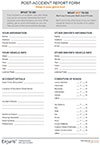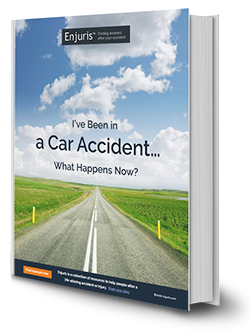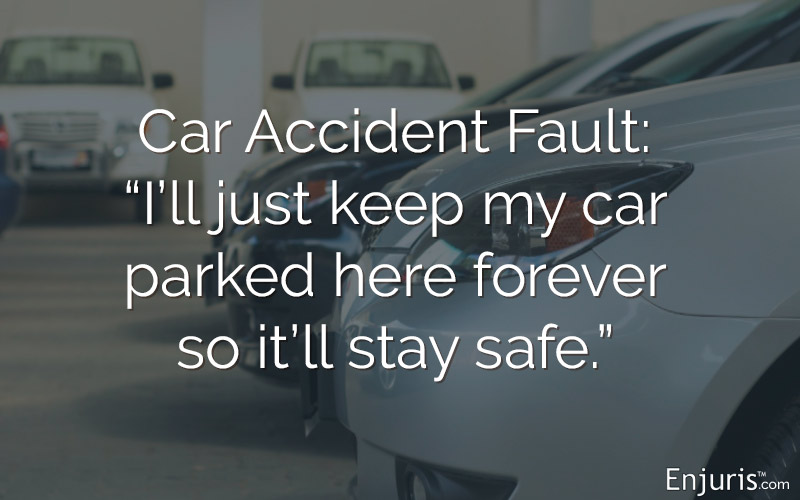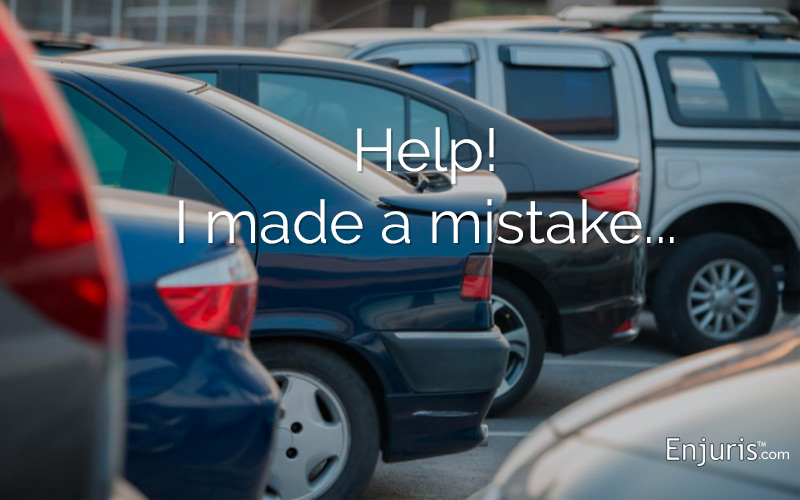Consider these six vital items if you’ve been in an auto accident in Colorado
A serious Colorado car accident is nearly always a traumatic event. You probably are in pain. You also are likely stressed and overwhelmed as questions flood your mind:
- What should I do first?
- Who should I talk to?
- How will I work? What happens if I can’t earn money?
- Who will fix my car?
- Should I talk to the insurance company?
- Who is going to pay for my medical bills?
- Will I ever be the same again?
It is important to understand the following six critical to-know items after car accidents in Colorado.
1. Seek immediate medical attention after a car accident – and not just for your health!
A car accident is exciting. Not in the sense of having a good time - but a serious Colorado car accident will flood your body with adrenaline and endorphins. These are powerful chemical our bodies produce to block pain temporarily as we work through a high-stress situation.
Right after your accident, you may not feel pain right away. You may not notice all of your injuries. There are two vital reasons to be checked out:
1. You want to be certain that any medical problems you have after the accident are treated swiftly and effectively. Your health is the most important thing.
Injuries that can take time to show symptoms include:
- Soft tissue injuries: Neck and back injuries are common, especially whiplash as your head is whipped forward and back, and side to side. You may not notice whiplash pain right away.
- Concussions: When the accident happened, your brain may have slammed into the inside of your skull. But you may not feel all of the effects immediately.
This is one reason why you should be seen by a medical professional right after the car accident.
2. If you determine that another party was at fault in the car accident, it is critical to document your injuries immediately.
If you choose to file a personal injury lawsuit later, you want to have a paper trail established with a medical professional right away. Also, you want to have your medical condition documented by a doctor right after the accident because that gives legal weight to your injuries.
It is strongly advised to be evaluated by a doctor even if you feel ‘fine.’
Tweet this
What about covering medical care costs?
Regarding your medical bills, most people just have their regular health insurance cover the cost for the time being. This can be revisited later during negotiations with the insurance company or the other driver’s attorney. If it was a hit and run accident, you will need to rely on your own insurance.
Write a journal about your pain, injuries and medical care. Note any inconveniences you experience.
Warning: If you decide to delay medical treatment for a few days after the crash, this could come back to haunt you later. Insurance companies and defense attorneys may use the delay to seek treatment to show that you were not seriously hurt in your accident.
2. Heed Colorado time limits and other state laws regarding accidents
In Colorado, you have a time limit of three years from the date of the auto accident to file a personal injury lawsuit (Colo. Rev. Stat. Secs. 13-80-101).
A lawsuit for property damage only is subject to a two-year filing deadline.
Note that the statute of limitations in Colorado only applies to lawsuits. There is no limit to how long after the accident you can file a claim with an insurance company. Still, you are wise to file your auto insurance claim quickly in Colorado after the accident happens.
Why you’ll want to keep time limits in mind
You are protecting your legal rights by giving yourself plenty of time to investigate the crash and negotiate a fair settlement. Also, you leave ample time to file a lawsuit or to threaten to file one, if negotiations stall.
Warning: If you are in a car accident caused by a government employee, you have only approximately six months to file a claim in Colorado.
Other Colorado laws you should keep in mind:
- Colorado has a comparative fault rule. This means if you were partially responsible for the accident, you may only collect damages for the percentage of fault the other driver had for the crash.
- The state has a cap on non-economic damages (pain, suffering and emotional trauma): $468,010.
- Colorado became a ‘fault’ insurance state in 2003. This means that injured parties have several options to obtain compensation for injuries in auto accidents: filing a claim with your or the other party’s insurance company, or filing a personal injury lawsuit.
See our guide to fault in Colorado.
3. Take notes and pictures – of everything!
As best you can, take plenty of notes about your injuries, pain and medical treatments. You should initiate this process as soon as you can after your accident. Write down the contact information for every medical professional you see. Also:
- Keep all bills and receipts regarding your medical treatment and your medications.
- Write a journal about your pain, injuries and medical care. Note any inconveniences you experience.
- Keep track of how many hours of work you are missing.
- Write a list of all out of pocket expenses you are incurring.
- Take pictures of your car damages, as well as your injuries.
Note: In a significant car accident claim or lawsuit, the side with the best paperwork usually wins. So, take a lot of notes and pictures of your accident injuries, pain and treatment.

Sample post-accident report form to keep in your glove box - fill out at the scene or as soon as you can after a car accident
Download in PDF format

Sample accident journal/diary to help you document the effect on your daily life
Download in PDF format
4. Limit phone conversations with the other driver’s insurance adjuster
A serious car accident usually involves substantial injuries. Within a day of the crash, the insurance adjuster for the other driver may contact you.
A common tactic when the other driver is at fault is for the adjuster for the other driver to offer a quick settlement.
A quick settlement for a serious car accident is usually a mistake. If it is only a day or two after your car accident, how do you know how severe your injuries really are?
That mild pain in your neck could become debilitating, agonizing pain in a few more days. That mild headache could turn into a thumping, four alarm migraine by tomorrow.
Insurance companies are in the business of making money and limiting their financial exposure in an accident. They limit their accident payouts by offering small settlements immediately after an accident. Once you accept a settlement, you will not be able to sue for more damages down the road, even if you later discover that your injuries are more severe than you thought.
See our guide to insurance claim settlements.
Don’t fall for it.
When the adjuster first calls, make it clear that you will say little at this time. Set limits on future phone contact, as well.
Tell the adjuster something like this: Until I have completed investigating the crash and have finished my medical treatment – and have fully recovered – I am not talking to you about the accident.
Tell the adjuster that you want the insurance company to communicate with you in writing at this time. You first want to determine how much your injuries are worth and will communicate that in a demand letter later.
In some Colorado car accidents, you may need to communicate with insurance adjusters in limited fashion. Your car may have serious damages, and they need to be fixed.
You may consider filing a claim with your insurance company to get the car issue addressed. If it turns out that the other insurance company should pay for it, that can be worked out later on. Still, you should try to talk to the other driver’s insurance company as little as possible.
5. Never sign anything from another insurance company
This is another trap insurance companies try to spring on a stressed-out car accident victim.
The other driver’s insurance company may send you a ‘routine form’ in the mail for you to sign. What they neglect to tell you is that these forms can give them complete access to your medical and employment records.
You are under no obligation to give them access to information about you at this time. Later in the insurance claim or lawsuit, you will provide the insurer with limited medical and wage loss information. But it will be on your terms, not theirs.
6. Talk to a Colorado personal injury attorney – it’s free
If you think your auto accident in Colorado is worth more than a few thousand dollars, strongly consider hiring an experienced personal injury lawyer.
Serious car accidents are complicated, and your injuries may be worse than you realize. See when you need a lawyer and when you don’t.
If your case involves a drunk driver, see DWI/drunk driving cases in CO.
The contingency fee the attorney charges you (usually 1/3 of damages awarded) is often a small price to pay. A 1999 study by the Insurance Research Council found that using an attorney usually results in a 40% higher award than without an attorney. Those extra funds can help to compensate you for your pain, suffering and lost wages.
Serious car accidents are traumatic, but following these six steps can get you on the road to recovery, and compensation, for your injuries.
Colorado requires minimum liability coverage in case of an accident
Once fault is determined in a personal injury case, it comes down to the involved parties’ insurance policies to pay for the damage.
In order to drive legally in the state of Colorado, drivers are required to hold a certain amount of minimum liability insurance coverage. But exactly how much car insurance do you need to meet that minimum?
Bodily injury liability
Colorado’s minimum insurance coverage requires drivers to carry bodily injury liability. This coverage comes into effect in if someone is injured or killed in an accident that you cause. Colorado requires car owners to carry $25,000 of insurance per person in bodily injury liability and $50,000 per accident. This amount is commonly expressed as “25/50.”
While this is the minimum requirement, Colorado drivers certainly have the option to purchase more insurance coverage to fit their needs.
Property damage liability
In addition to bodily injury liability, Colorado also requires its drivers to carry a certain amount of property damage liability insurance. This coverage amount must meet a minimum $15,000 per accident for any property damages that the injured party may have suffered.
Again, drivers have the option to purchase more insurance coverage if they wish, but this is the minimum you must have.
Additional coverage
While no other insurance coverage is required for Colorado drivers, insurance companies are required to offer their customers uninsured motorist coverage. This coverage comes into effect whenever you are injured by a motorist that is not carrying the proper insurance. Coverage can be used for medical expenses or property damage.
Even though insurance providers are required to offer uninsured motorist coverage to drivers, drivers can elect not to purchase this coverage.
- My Car Accident in Colorado
- Blood Alcohol Content and the Law in Colorado
- Colorado Car Insurance Laws and
Minimum Requirements - Colorado Moped Laws & Legal Requirements For Driving a Scooter
- Colorado Plane Accidents: Lawyers and Laws
- Colorado Railway Accident Cases – What You Need to Know
- Distracted Driving Accidents in Colorado
- DWI/Drunk Driving Cases in CO
- Guide to Motorcycle Accidents in Colorado
- Hit and Run Drivers in Colorado
- Maritime and Boating Accidents in Colorado
- Pedestrian Accidents in Colorado
- Taxi, Bus and Truck Driver Injuries in Colorado
Did you know that car accident law varies by state?
Proving fault in a car accident
Just because you got hit by a car doesn't mean you're at fault - but sometimes, it does! Learn about car accident fault with our resources. Read more
Need a lawyer?



















